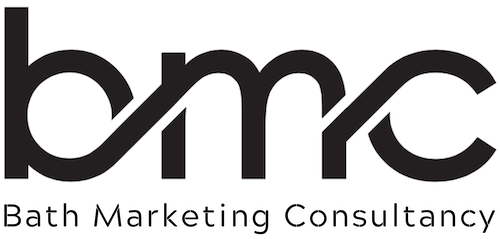Brand Awareness: Making Your Business Recognisable
Before customers even consider buying from you, they need to know you exist. Brand awareness campaigns don’t necessarily drive immediate sales, but they ensure your brand is top of mind when a customer is ready to make a purchase.
📌 Example: A construction company might not expect instant leads from billboard advertising, but when a business needs a contractor, they’re more likely to remember the brand they’ve seen repeatedly.
💡 How to build brand awareness:
✅ Social media marketing
✅ Sponsorships & partnerships
✅ PR & media coverage
✅ Content marketing (blogs, videos, podcasts)
Customer Retention: Marketing to Your Existing Clients
Acquiring new customers is important, but retaining existing ones is more profitable. Loyal customers spend more, refer others, and contribute to steady revenue.
📌 Example: A subscription-based business uses email marketing and loyalty rewards to keep existing customers engaged, reducing churn and increasing long-term revenue.
💡 Retention marketing strategies:
✅ Email marketing & personalised offers
✅ Loyalty programmes & rewards
✅ Customer service initiatives
✅ Community engagement
Thought Leadership: Becoming a Trusted Industry Voice
Marketing isn’t just about selling—it’s also about educating and influencing. Businesses that position themselves as experts gain trust, making them the go-to choice in their industry.
📌 Example: A law firm consistently publishing industry insights on its blog may not see direct conversions, but over time, it becomes the trusted legal authority for its audience.
💡 Ways to establish thought leadership:
✅ Publishing insightful blog content
✅ Speaking at industry conferences
✅ Hosting webinars & online workshops
✅ Engaging in media interviews
Market Research: Understanding Your Customers & Competitors
Marketing isn’t just about pushing messages—it’s also about listening. Understanding market trends, consumer behaviour, and competitor activity ensures businesses stay relevant and competitive.
📌 Example: A restaurant chain notices that customers are demanding more plant-based options, leading them to adjust their menu accordingly—helping them stay ahead of competitors.
💡How businesses use market research:
✅ Conducting customer surveys
✅ Analysing competitors & industry trends
✅ Tracking online behaviour & engagement
✅ Testing new products & campaigns
Reputation Management: Protecting Your Brand Image
A brand’s reputation can make or break its success. Negative press, bad reviews, or poor customer experiences can damage a business if not handled properly. Marketing plays a key role in shaping, managing, and protecting brand reputation.
📌 Example: A company facing negative customer feedback on social media can use marketing to respond, rebuild trust, and demonstrate commitment to improvement.
💡 Reputation management strategies:
✅ Proactive PR & crisis communication
✅ Encouraging & responding to online reviews
✅ Transparent & ethical business practices
✅ Engaging positively on social media
Employee Engagement: Marketing Within Your Business
Marketing isn’t just external—it also impacts how employees view the company. A strong brand identity, clear mission, and internal marketing efforts help businesses attract and retain top talent.
📌 Example: A company with a strong employer brand (through social media, job listings, and culture-focused content) attracts skilled professionals who align with its values.
💡 Internal marketing initiatives:
✅ Employer branding & recruitment marketing
✅ Staff newsletters & communication
✅ Team-building & company culture content
✅ Recognition & rewards programmes
FAQs
Q: What is the most important first step in a marketing plan?
A: The absolute first step is defining your business goals. Your entire marketing strategy should be built to achieve specific, measurable objectives, whether that’s brand awareness, lead generation, or sales growth.
Q: Why do I need to define my target audience?
A: You can’t effectively market to “everyone.” Defining your target audience allows you to understand their needs, pain points, and media habits. This ensures your message resonates, your budget is spent wisely, and your campaigns are more effective.
Q: How do I know which marketing channels to use?
A: The right channels depend entirely on where your target audience spends their time. A B2B company might focus on LinkedIn, while a visual consumer brand might prioritize Instagram and TikTok. Your plan should identify the most effective mix for your audience.
Q: Why is a budget so crucial for a marketing plan?
A: A clear budget prevents overspending and helps you allocate resources to the most impactful activities. It forces you to prioritize initiatives that offer the best return on investment (ROI) for your business.
Q: What does “Success Metrics & Analysis” mean?
A: This refers to how you will track and measure your results. By defining Key Performance Indicators (KPIs) like website traffic, conversion rates, or social engagement, you can see what’s working, what isn’t, and adapt your plan for better results.
Final Thoughts: Marketing is a Long-Term Investment
While new business generation is a key function of marketing, it’s only part of the bigger picture. A well-rounded marketing strategy builds trust, loyalty, and brand strength—ensuring long-term business success, not just short-term sales.
By focusing on multiple objectives—including brand awareness, customer retention, thought leadership, market research, reputation management, and employee engagement—businesses can create sustainable growth and a brand that stands the test of time.
Want to ensure your marketing strategy is working across all areas of your business? Let’s start talking!



